The last few weeks I have posted several radiographs to practice the SLOB rule using both vertical angle changes and horizontal angle changes. Below are the examples again with the location of the labeled ‘unknown’ object along with the results of the online polls to state your answer.
Vertical Angle Changes
Marker: Smiley face
‘Unknown’: cusp
Location: Lingual (so the lingual cusp)
Results: 100% correctly identified the cusp was to the lingual (4 answers)
Marker: Lightning bolt
‘Unknown’: Metallic entity
Location: Buccal (a lip piercing)
Results: 58% correctly identified the metallic entity cusp was to the buccal (26 answers) – This one proved it was a little more difficult. The periapical radiograph is more inferior than the bitewing radiograph, the metallic entity moves superiorly compared to the teeth, so this is in the opposite direction and hence the object is to the buccal.
Marker: Diamond
‘Unknown’: calcification
Location: Buccal
Results: 46% correctly identified the calcification was to the buccal (26 answers). This example was even more difficult than the last. I used the cemento-enamel junction on the mesial aspect of the maxillary first molar. On the periapical radiograph, the calcification moves inferiorly compared to this marker and this is the opposite direction of the radiograph.
Horizontal Angle Changes
Marker: Heart
‘Unknown’: Impacted premolar
Location: Lingual
Results: 51% correctly identified the impacted premolar was to the lingual (35 answers).
Marker: Plus
‘Unknown’: radiopaque entity
Location: Lingual (massive lingual tori)
Results: 43% correctly identified the radiopaque entity was to the lingual (35 answers)
These series of posts were to give you examples of how to use the SLOB rule changing vertical and horizontal angles. Thanks everyone for posting an answer, it helps to show me that this is still one of the most difficult aspects of radiographic interpretation. Look for a new series in the upcoming year using image shift to determine the location of unknown or known objects.
If you have any questions or would like some clarification, please feel free to ask or comment below. Thanks and enjoy!
SPONSOR
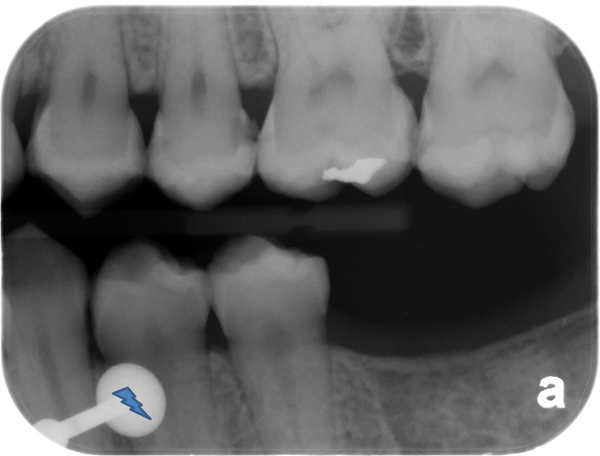
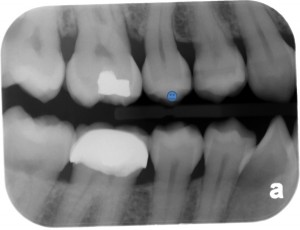
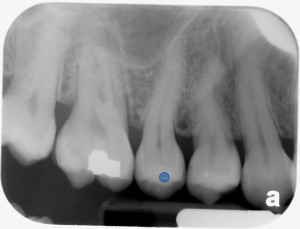
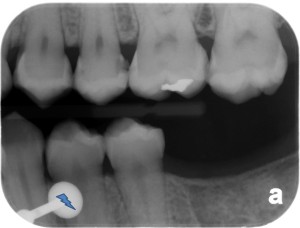
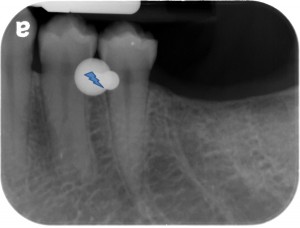
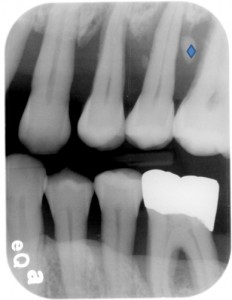
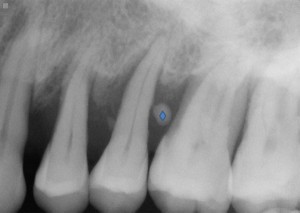
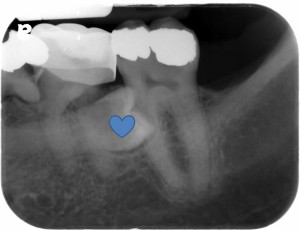
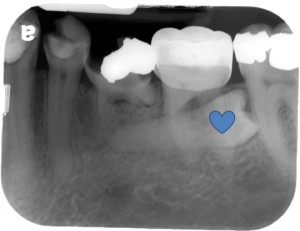
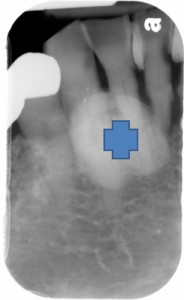
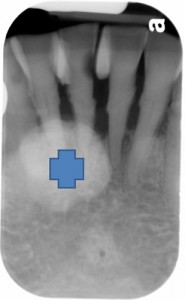
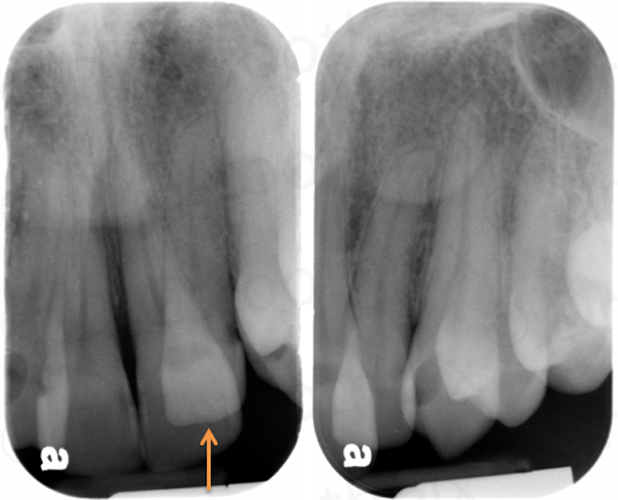
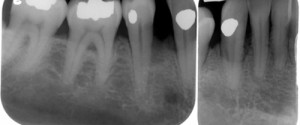

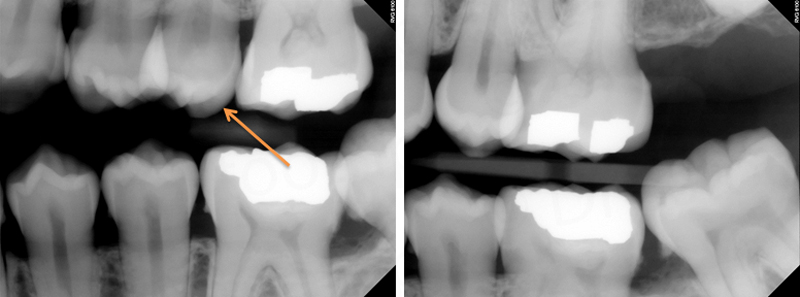
Thanks for this post!
thanks !